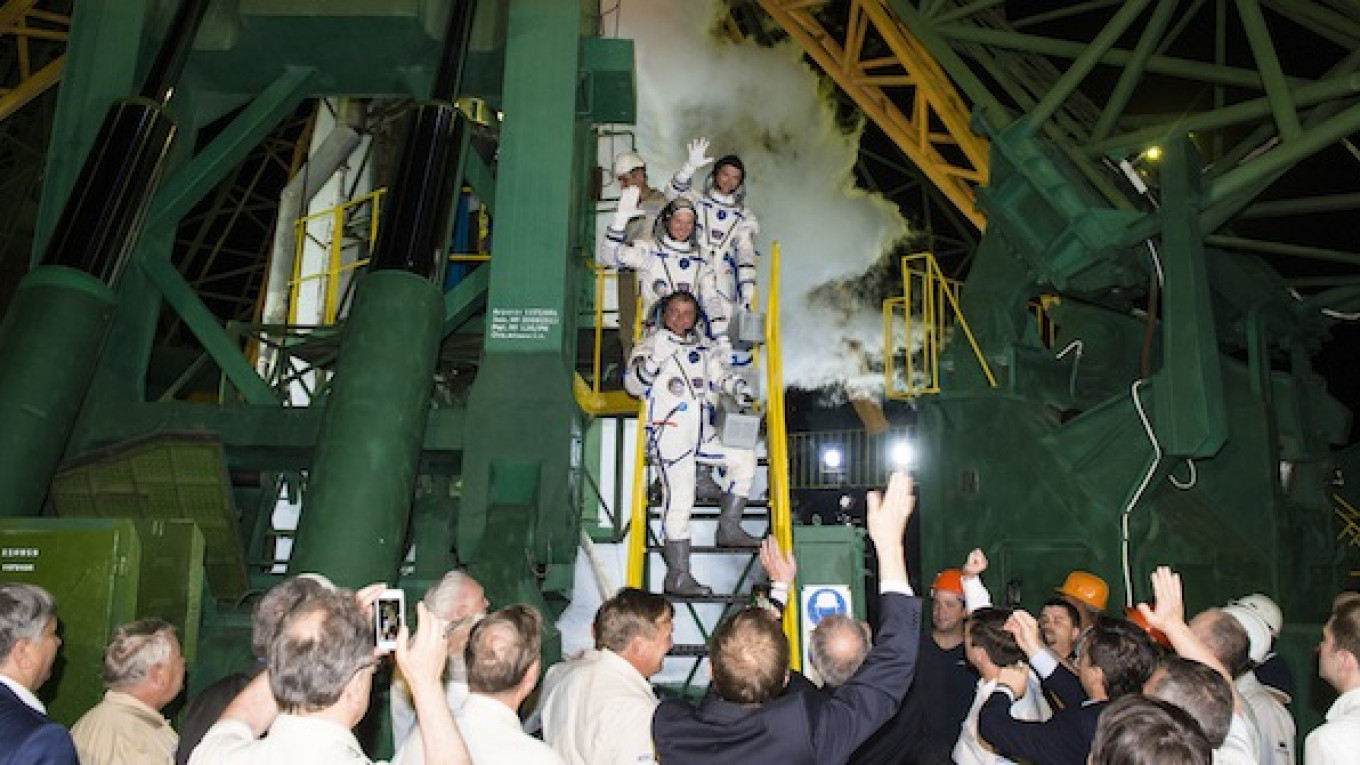A senior Russian space official has said cooperation with the U.S. on the International Space Station has not suffered from the Ukraine crisis, despite indications tensions may be imposing themselves on the otherwise resolutely apolitical space partnership.
"[The International Space Station, or ISS] is in absolutely no way affected [by the Ukraine conflict]," Vladimir Solovyev, the Federal Space Agency's head of the Russian segment of the space station, was cited Tuesday as saying by news agency Interfax.
"How could there be sanctions, when the ISS is an international project in which everyone is tied to each other? The Russian side provides the station's transportation service," he added.
Though the ISS is a project of 15 nations — including European, Canadian and Japanese space officials — it is overseen by the U.S. and Russia.
Relations between the two countries have progressively cooled ever since Ukraine's pro-Kremlin president Viktor Yanukovych was ousted in February, resulting in a year-long import ban on food products from the West —including the U.S. — in retaliation for economic sanctions imposed on Russia.
With the ISS program set to expire in 2020, Deputy Prime Minister Dmitry Rogozin said in May that Russia was not interested in prolonging its work with an "unreliable partner" such as the U.S.
Russia's ISS program manager, Alexei Krasnov, said last month Federal Space Agency Roscosmos had not yet received permission to confirm its continued participation because of the Ukrainian crisis, SpaceNews reported.
The vaunted U.S-Russia space partnership has weathered a number of political storms since its inception in the late 1990s, including the 2008 Georgian crisis, when tensions between Washington and Moscow flared over Russia's brief invasion of its post-Soviet neighbor.
See also:
A Message from The Moscow Times:
Dear readers,
We are facing unprecedented challenges. Russia's Prosecutor General's Office has designated The Moscow Times as an "undesirable" organization, criminalizing our work and putting our staff at risk of prosecution. This follows our earlier unjust labeling as a "foreign agent."
These actions are direct attempts to silence independent journalism in Russia. The authorities claim our work "discredits the decisions of the Russian leadership." We see things differently: we strive to provide accurate, unbiased reporting on Russia.
We, the journalists of The Moscow Times, refuse to be silenced. But to continue our work, we need your help.
Your support, no matter how small, makes a world of difference. If you can, please support us monthly starting from just $2. It's quick to set up, and every contribution makes a significant impact.
By supporting The Moscow Times, you're defending open, independent journalism in the face of repression. Thank you for standing with us.
Remind me later.






